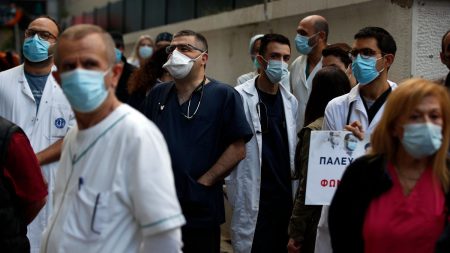In 2023, the European region reported a notable increase in new HIV diagnoses, with health authorities attributing this spike partly to enhanced testing measures. The World Health Organization (WHO) highlighted that nearly every country within the European region had observed new cases, marking a troubling trend since the onset of the HIV/AIDS epidemic in the early 1980s, which has seen over 2.6 million reported infections across 53 countries. Specifically, 113,000 new diagnoses emerged from 47 European nations, reflecting a modest but concerning rise of 2.4% from the previous year. These statistics indicate not only the persistent threat of HIV in the region but also signify a post-pandemic rebound in testing, which had faced interruption during the COVID-19 health crisis.
Despite these alarming figures, global trends indicate a significant decline in new infections, with a drop of 21.9% reported between 2010 and 2021. However, this positive shift has not been uniformly experienced across all European territories, particularly in central and eastern regions which have seen rising HIV incidences and related mortality rates. The report from WHO emphasized that out of 21 nations in Europe, many experienced increased diagnoses, with eight countries registering the highest number of new cases in the last decade. This situation underscores the need for concerted public health efforts to address the diverse factors contributing to the resurgence of HIV prevalence.
Crucially, there remains a significant knowledge gap regarding HIV status among the population, especially in Eastern Europe and Central Asia, where only 60% of those living with HIV are aware of their infection. Approximately 30% of HIV-positive individuals in Europe, as noted in the report, do not know their status, which complicates prevention and treatment efforts. Additionally, data showed that a substantial proportion of new diagnoses (48%) involved immigrants and individuals who were diagnosed late in their illness, often resulting in advanced health complications. Such trends highlight systemic issues within healthcare access and societal stigma that continue to hinder the effectiveness of HIV management strategies.
Antiretroviral therapy has proven to be an effective means of managing HIV as a chronic condition, ensuring that individuals can lead healthy lives with the virus maintained at undetectable levels. However, late diagnoses significantly increase the risk of progression to AIDS, which remains a critical public health concern. According to UNAIDS, approximately 630,000 AIDS-related deaths were reported in 2023, reaffirming the urgent need for improved healthcare interventions and awareness campaigns to combat the disease’s most fatal consequences. By emphasizing early detection and treatment, healthcare systems can mitigate the risks associated with advanced HIV infections.
Leading health officials such as Dr. Pamela Rendi-Wagner of the ECDC emphasized the progress made towards enhancing access to testing and reducing the number of individuals living with undiagnosed HIV. Nonetheless, her remarks highlighted that the situation demands ongoing efforts, particularly geared toward ensuring that at-risk populations have adequate access to prevention, diagnostic testing, and necessary treatment options. The focus on vulnerable groups is crucial, as addressing their specific needs can further enhance the impact of existing public health strategies.
In conjunction with the need for improved healthcare access, combating stigma and discrimination associated with HIV remains a pressing challenge. Dr. Hans Henri Kluge, the regional director of WHO Europe, called for increased funding and resources to strengthen testing and prevention efforts. This holistic approach is essential not only for curtailing the spread of HIV but also for promoting a more inclusive and supportive environment for individuals affected by the virus. The data from 2023 emphasizes the importance of continued vigilance and collaborative action to navigate the complexities of HIV management, ensuring that public health progress is sustained and expanded throughout Europe.














